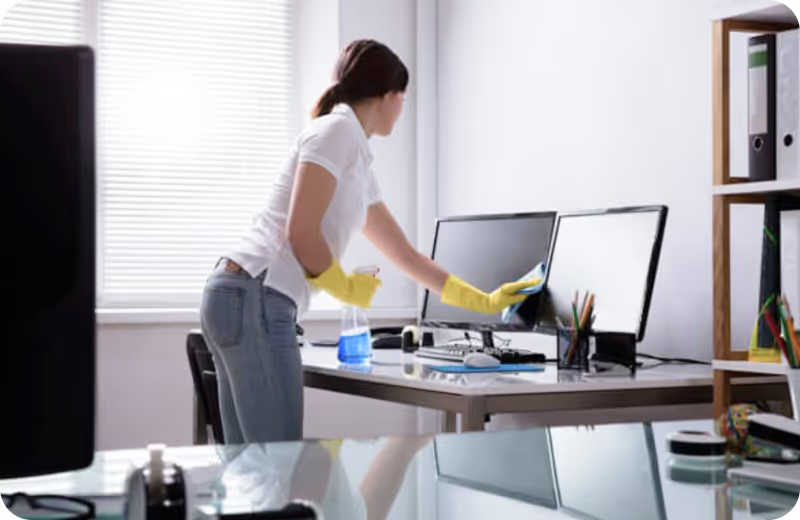
Condominiums in Singapore are prized not only for their homes but also for their shared facilities—gyms and swimming pools. While it might be tempting for property managers to rely on basic cleaning tasks like mopping to maintain these amenities, such superficial upkeep isn’t enough.
Fitness zones and swimming pool areas will need deeper, professional maintenance routines to ensure hygiene, safety, compliance, and guest satisfaction. Here are the crucial reasons condo managers should go beyond mops and buckets.
Health and Hygiene Standards
While mopping removes surface dirt, it won’t fully eradicate bacteria, viruses, and fungi that thrive in moist environments. Tiled shower areas, locker rooms, water fountains, and exercise mats are notorious breeding grounds for pathogens. Regular disinfection—especially against viruses like influenza or COVID-19—is essential to prevent infection.
Skin and Respiratory Safety
Pools and humid rooms create environments ripe for skin infections like athlete’s foot and ear infections like swimmer’s ear. Proper chlorination and chemical balance are vital, but so is routine deep cleaning to reduce biofilm buildup on pool walls, filters, and floor drains. Gym equipment, too, needs sanitization after use to stop cross-contamination.
Corrosion Protection
Sweat, towels, and moisture can wear down gym machines over time. Rust may form on metal parts, and corrosion may affect electronics. Simply wiping these adequately maintained areas will miss residue in crevices. On the other hand, regular and deep cleaning of the electronics can prolong the equipment's lifespan.
Pool Filtration Systems
Pool systems depend on clean filters and circulation pumps for safe swimming conditions. Mopping won’t touch these hidden systems. Regular inspections of filter cartridges, sand filters, and UV systems, along with timely cleaning, are necessary to sustain hygiene and efficiency.
Slip and Fall Prevention
Wet floors pose a high risk of slips, especially in pool decks and changing rooms. Mopping might not be enough, as it might still leave behind slippery residues from shampoos, lotions, or emulsifiers. High-risk areas require deep cleaning with the use of industrial scrubbers and non-slip cleaning agents to ensure it is not only thoroughly clean but can also prevent any accidents, such as slips and falls.
Compliance with Regulations
From hygiene compliance to safety standards, condo facilities are subject to regulation from the Public Utilities Board for pools’ chlorine levels, to fire regulations for gym apparatus layout. Relying on minimal cleaning increases the risk of regulatory breaches, leading to fines, complaints, or facility shutdowns.
Maintaining Aesthetics and Resident Satisfaction
Condo facilities reflect the quality of the development. Unkempt equipment, unsightly lime scale around pool edges, or graying grout diminish residents’ experiences and may hurt property values. Deep cleaning, such as tile scrubbing, grout sealing, machine polishing, and blade sharpening, can elevate condo perceptions and increase resident enjoyment.
Odour Control
Locker rooms and pool areas frequently develop unpleasant odors due to bacteria in towels, wet clothing, and drains. While mopping may mask surface grime, only professional enzymatic cleaners and drain sanitation can address odor at its source. Deep cleaning systems—including ozonation or UV treatment—eradicate smells and pathogens at a microbial level.
Preventive Maintenance Saves Money
Regular extensive cleaning helps identify emerging wear and tear—broken tiles, malfunctioning jets, or mold intrusion—while minor at first, these issues become expensive if neglected. A thorough maintenance program uncovers issues before they escalate, avoiding hefty repairs or liability claims.
Decrease Water Quality
Pools require precise chemical balance (chlorine, pH, alkalinity) to remain safe. Professional cleaning includes water testing and adjustments throughout the week, while regular mopping fails to support or monitor water quality. Without this level of care, you risk algae blooms, cloudy water, health complaints, or pool closures.
Pest Prevention
Dirty drains or neglected corners can attract pests, mosquitoes breeding in standing water, ants drawn to locker room scents, or rodents hiding in gym nooks. Professional cleaning includes sealed maintenance, pest-proofing hygiene audits, and controlled disposal of food containers or towels, keeping insects and vermin at bay.
Healthier Environments
Fitness enthusiasts are exposed to high levels of bacteria and skin oil residue when using mats, machines, and dumbbells. Regular mopping wipes away sweat, but only deep cleaning—especially with anti-bacterial agents—brings gym surfaces to safe levels. It also helps prevent gear breakdown and enhances workout satisfaction.
Conclusion
Condo gyms, pools, and spa areas are more than amenities, they reflect your property’s reputation, influence residents’ well-being, and affect your maintenance costs. Mopping might make these spaces look clean, but it overlooks hidden health risks, compliance gaps, equipment degradation, and resident dissatisfaction.
A professionally managed cleaning program—including disinfection, deep cleaning, preventative checks, chemical monitoring, and stain protection—is essential to maintain safety, system efficiency, and aesthetic appeal. Ultimately, it protects investment, the community’s health, and the condo’s desirability.









.jpg)
.jpg)
.jpg)
.jpg)
.jpg)












